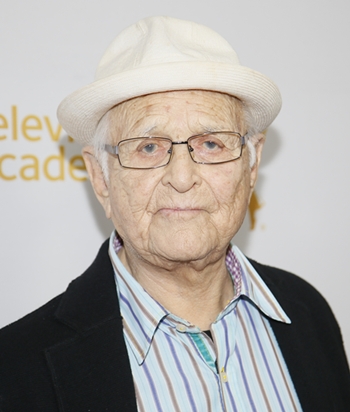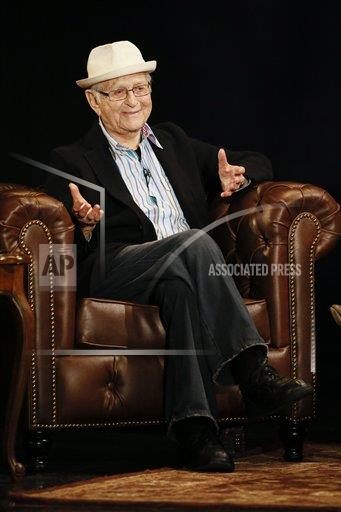Strong women, sharp insight, social conscience and stand-out comedy define the work of legendary TV writer and producer Norman Lear, creator of hit shows such as “All in the Family,” “The Jeffersons,” “Good Times,” “Sanford and Son,” “Maude,” “One Day at a Time,” and “The Facts of Life,” among many others.
The sit-coms and their beloved characters – particularly those with grit and swagger à la George Jefferson (Sherman Hemsley) and “J.J.” Evans (Jimmie Walker) of “Good Times” – inspired many hip-hop musicians, who grew up watching the shows, to pursue their artistic and entrepreneurial dreams. That was the premise of Wednesday night’s “An Evening with Norman Lear” at the Montalbán Theatre in Hollywood, presented by the Television Academy.
George Jefferson’s feisty humor, financial success and Upper East Side address, not to mention his cocky strut, spoke to Russell Simmons, co-founder of the Def Jam record label and one of several contributors to the program.
Said Simmons: “[George] was a successful black man. He didn’t bite his tongue. He wasn’t no punk. He’d tell the truth. And that was inspiring ’cause, you know, you didn’t see that.”
(Hemsley appeared on “All in the Family” from 1973-1975 and starred in “The Jeffersons” from 1975-1985.)
Other guests included Common, Baratunde Thurston, D-Nice, Kenya Barris and Steve Stoute. Touré of MSNBC’s “The Cycle” moderated the panel.
At the end of the evening, there were surprise guests: the still-hilarious Marla Gibbs (who played Florence on “The Jeffersons”) and actress Regina King.
Lear, relaxed and remarkably nimble at 92, took a few opportunities to plug his 2014 autobiography titled “Even This I Get to Experience.” (He signed copies after the discussion.)
But he was quick to deflect any hyperbole about his stellar six-decade career, changing the topic by brandishing his caustic wit. His dry asides often made the audience roar with laughter. “I take life seriously and I find humor in everything,” he said. “At a funeral, the person suffering the most is also the one scratching his ass. Because it itches. That’s the way life is.”

Lear said the keys to his success were that he listened, he paid attention and he thought he had something to say.
Lear said the keys to his success were that he listened, he paid attention and he thought he had something to say. Luckily his shows were launched when viewers wanted meatier fare than what they were seeing on the tube.
“The roast is ruined and the boss is coming to dinner was seen as a real problem,” he deadpanned, referring to fun but lightweight TV comedies, such as “Green Acres,” that preceded his work.
Was the TV business easier back in the day? Not so much. “Nobody ever lost money underestimating the arrogance of a network executive,” he said.
He was equally candid about the ironies in his own life. Tending to his five families on TV, a source of “joyful stress” that was often all-consuming, meant that he “was out to lunch for years” as a father to his own six children.
And clearly Lear remains young at heart. Upon hearing that Common was performing later that evening, Lear said: “Really? Let’s all go.”
A replay of the live webcast of the panel can be viewed here.
Photos by Invision for Television Academy/AP Images by Danny Moloshok












From FNB readers